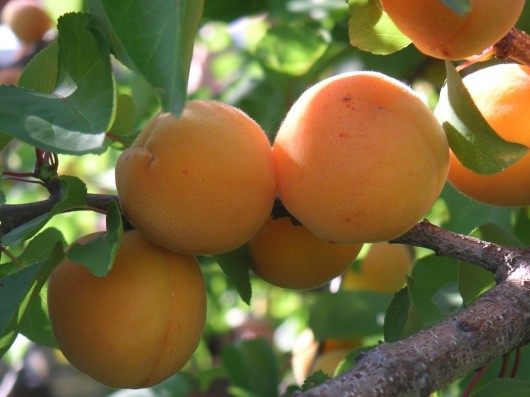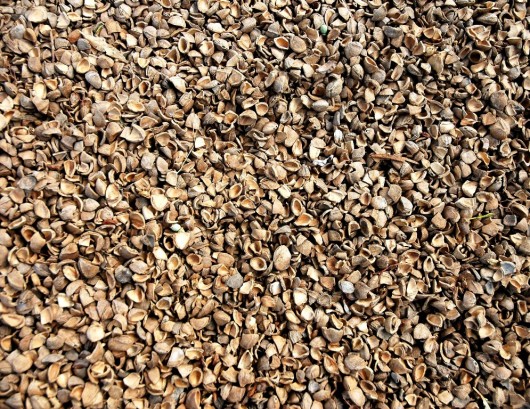Apricots And Apricot Juice
About the Apricot Fruit
The apricot has long been appreciated for capacity to improve health and offset certain illnesses. The apricot contains a number of important vitamins and minerals that aid body digestion, eliminate toxins and improve health. It is one of the more nutritious fruits that can be consumed. Apricots are great when ripe, they can also be dried or turned into juice. At the peak of ripeness, apricot juice requires only little sweetener to remove the distinctive tart flavor.
Apricots are believed to originate from India or China over two thousand years ago. They followed Roman armies into Europe and eventually found home in America during colonization. The rich soils in California are an important source of apricots today. Their health benefits were realized long ago – they are high in vitamin A and C, beta-carotene, iron and a good source of fiber. Due to fiber and pectin content, apricots aid in prevention of constipation. However, too much consumption also causes intestinal distress.
Apricot Juice
Apricot juice has distinct sweet-tart flavor with added health-related benefits. The best time for juicing is at full ripeness when apricots are sweeter. Juice is loaded with nutrients that aid the immune system. It is often used to help in the reduction of fever and illness.
Health Benefits Related to Apricot Juice
Apricot juice retains most of the nutritious qualities found in whole ripe fruits so lots of vitamins and minerals can be consumed by drinking this juice. The iron content is important in the production of red blood cells in prevention of anemia. Juice also provides additional benefits including improved heart maintenance and prevention of cancer. The concentration of beta-carotene and other antioxidants remove free radical toxins.
How to Make Apricot Juice
The simplest method for making apricot juice is using a juicer. Fresh ripe apricots including skin for fiber can be easily juiced once the pit has been removed. Another method includes boiling apricots until they are soft. Boiled apricots are pushed through a filter with cheesecloth leaving only the juice. However, this method does eliminate much of the fiber. It is also possible to blend whole apricots, with pit removed, adding sugar and water for taste and consistency.
Interesting Facts about Apricots
Apricot tree leaves also provide health related benefits. Juice acquired from leaves can be applied to the skin for treatment of eczema, scabs and dry itchy skin. Oil from the seed kernel was often used to ease strained muscles, as mild sedative or even for cooking. The seeds of certain apricots (mostly those grown in central Asia and Mediterranean) are so sweet that they may be substituted for almonds. For instance – a well known Italian liqueur called amaretto is flavored with extract of apricot kernels (as well as with extract of almonds). Kernels do however contain small amounts of cyanide (about 0.5 mg in one kernel). To much of them can result in symptoms of cyanide poisoning – nausea, fever, rash, headaches, insomnia, thirst, weakness, lethargy, nervousness…
Apricots are truly an amazing fruit – they provide a good source of vitamins and minerals, are a good source of beta-carotene and help remove free radical toxins from the body. They strengthen the heart, improve blood production and aid the immune system. Best of all, apricots taste great as whole fruits, dried or juiced.
More Articles On Blackberries And Blackberry Juice
Best Apricots For Apricot Juice And How To Choose Them
The best apricots for juicing are the ones you grow …Apricot Juice Side Effects – Can You Drink Too Much Of It?
Apricot juice side effects seem to appear only one time …Apricot Nutrition Facts
Apricot Nutrition Facts Betaine 0 mg Calcium 13 mg Calories …Health Benefits Of Apricot Juice
Apricot juice is one of the most delicious fruit juices …

